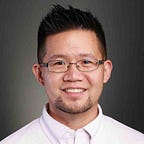The last several days have been intense since the bootcamp schedule has been jam packed. There are literally layers of things going on. While it was week 2 for the Biodesign Fellows, this week marked the start of the newest batch of med device startup companies joining the TMCx accelerator. From 8 of us Biodesign Fellows, now our lectures during the bootcamp are entirely full with 19 of the accelerator companies from West Coast, East Coast, and all over the world.
This week’s lectures were provided by guest speakers Mike and Pedram from Stanford University, covering a variety of startup related topics. While some topics were refreshers, others were new. I’ve enjoyed meeting the medical device entrepreneurs who have much deeper knowledge of healthcare and medical device startups. I’m happy to have offered my knowledge and experience in market research, user research, and product management as well. While there were many interesting startups that joined, one of the companies is iSono Health from San Francisco, which focuses on early breast cancer detection. Maryam Ziaei and Shadi Saberi are co-founders with electrical engineering PhDs, and Shadi is also a Carnegie Mellon alumni.
Although I spent what seems like endless hours in lectures, there were a lot of activities going on, some specific to Biodesign and others not. Rather than writing about it, here’s some highlights in photos:
Tour of Methodist Research Institute
In the Texas Medical Center, we hopped on a short shuttle ride to visit the relatively new Michael E. DeBakey (pioneer in developing the artificial heart) Institute for Cardiovascular Education and Training in the Methodist Research Institute. The institute focuses on getting translational research to clinical trials, which is a step towards commercialization.
Welcome Dinner & Outgoing Class Graduation Ceremony
It was a treat having the opportunity to be recognized in the incoming Biodesign class and seeing the graduating Biodesign team starting Alleviant Medical which is a medical device company working on heart failure innovations. The digital health team also graduated and was recognized for their successes of going through the program, but a company was not formed.
